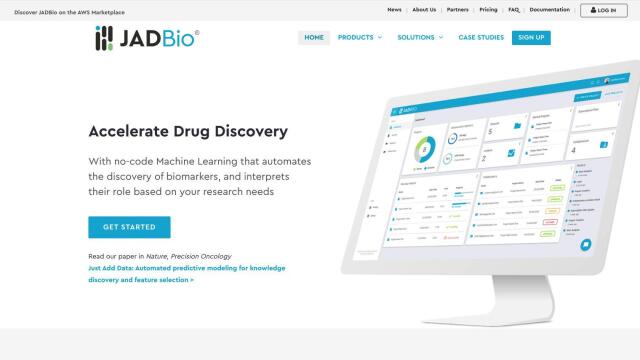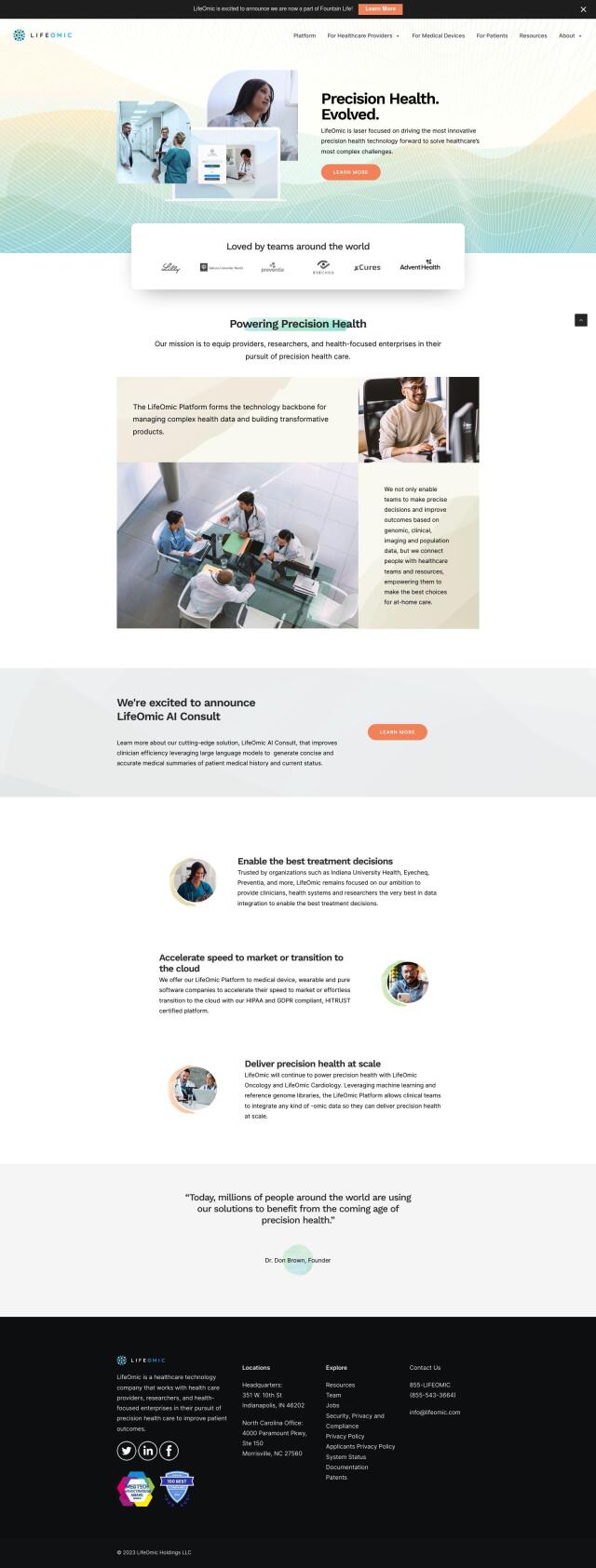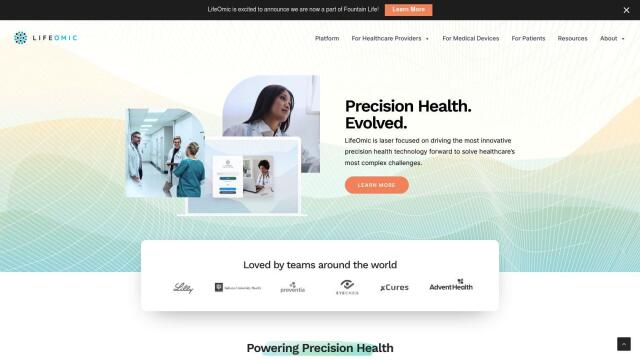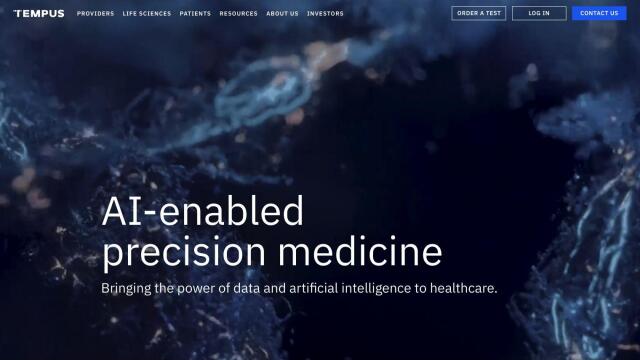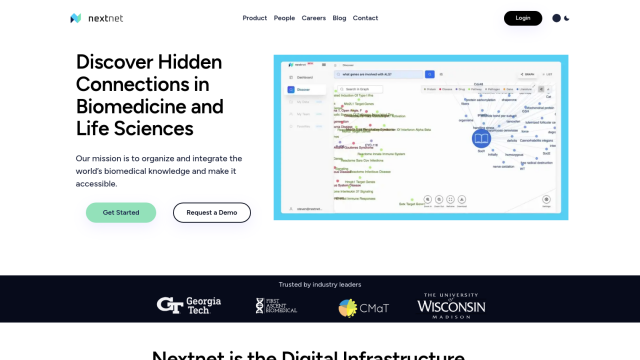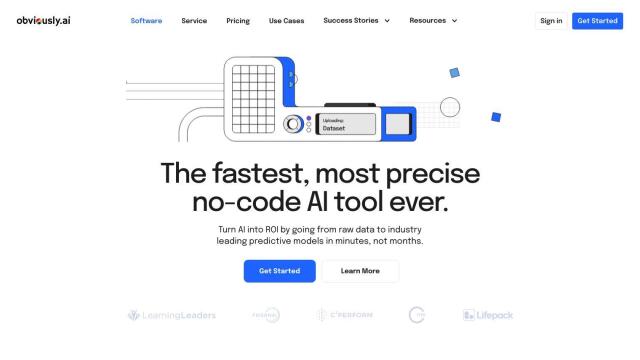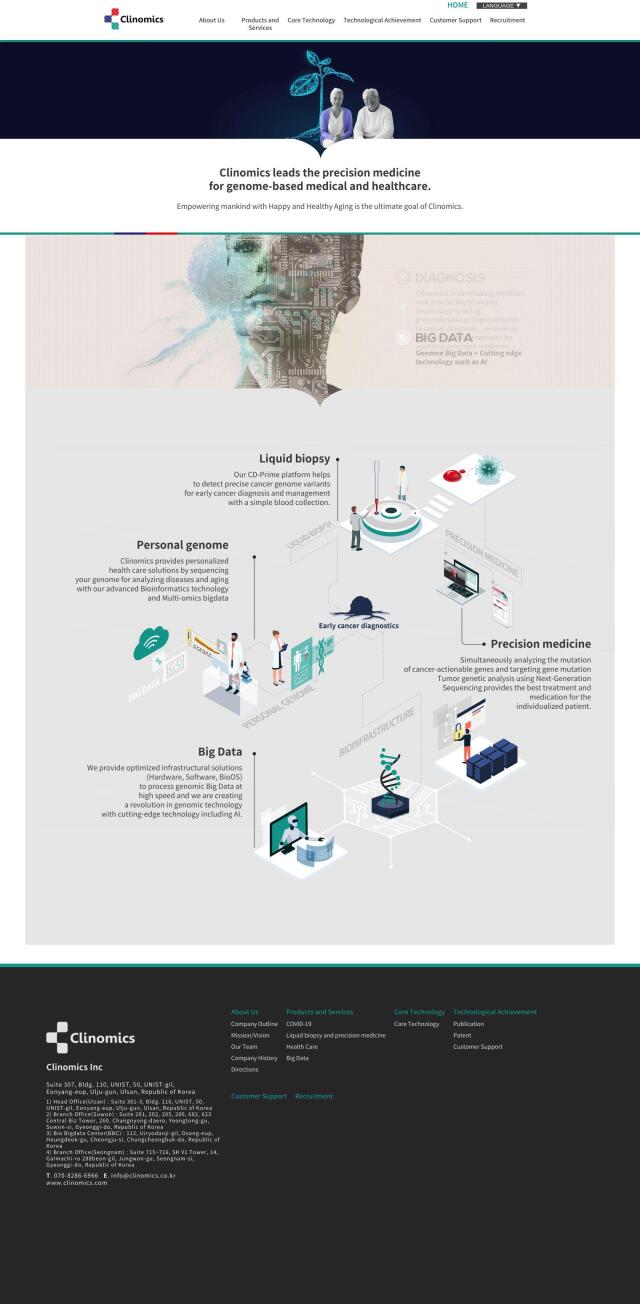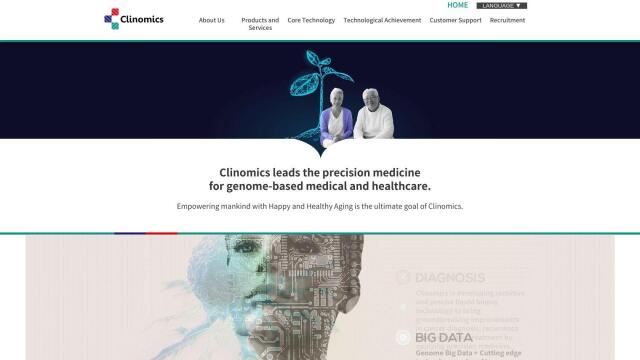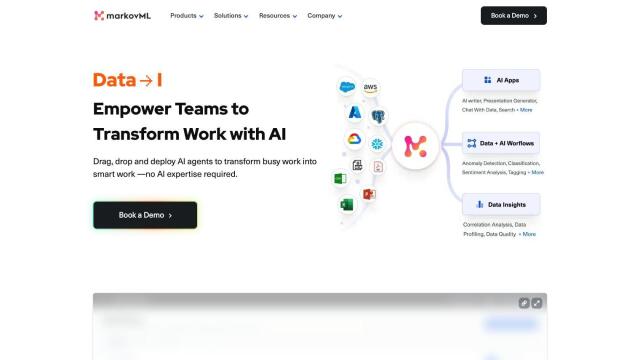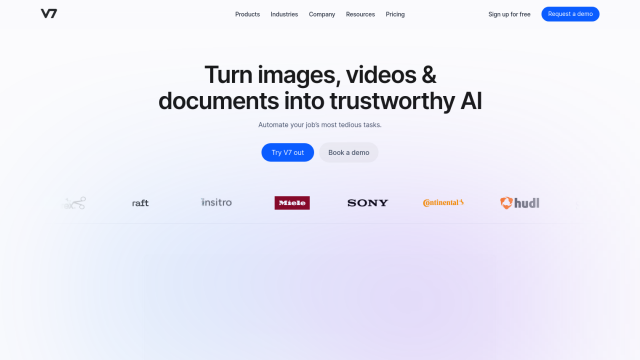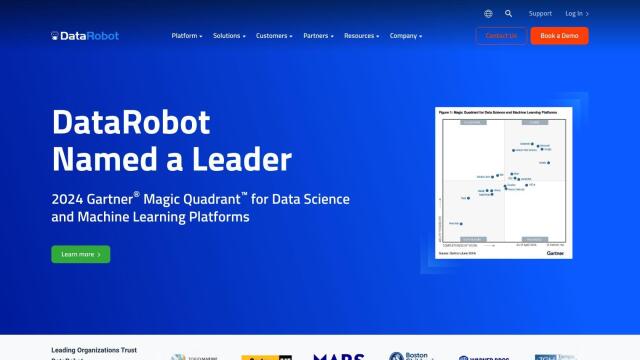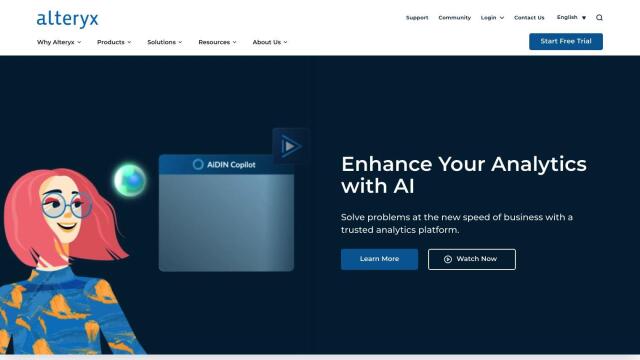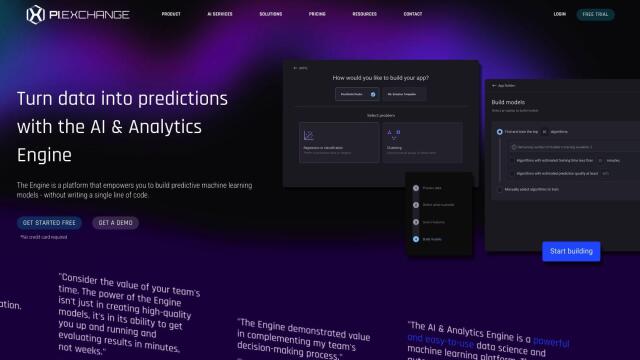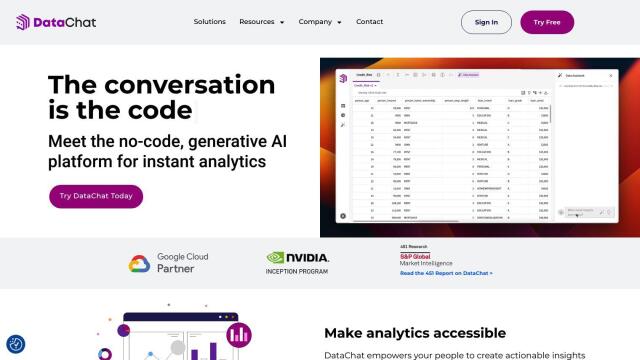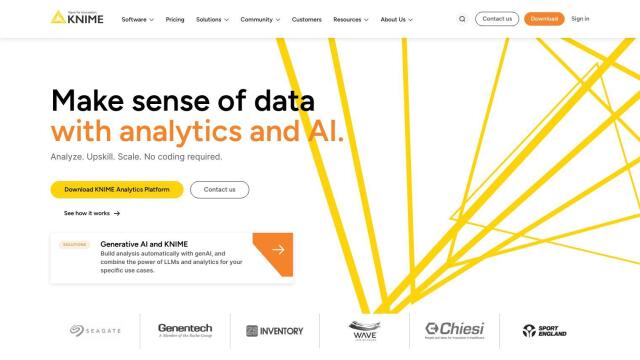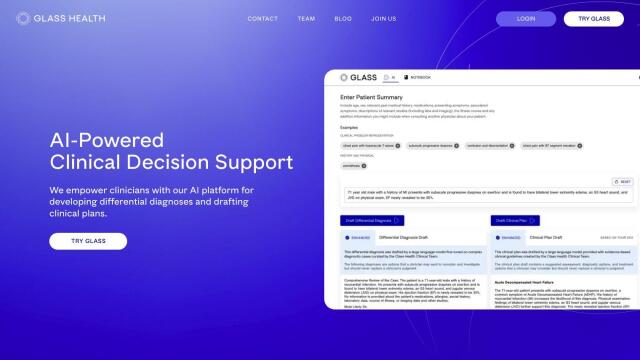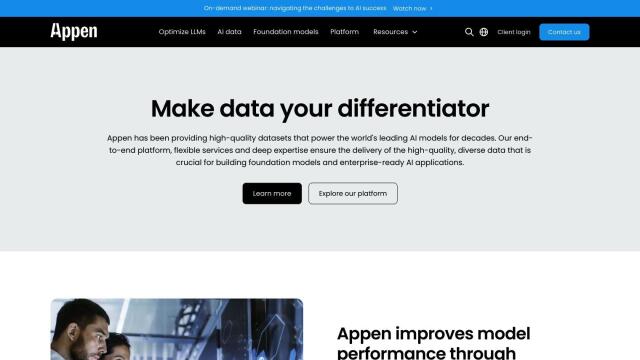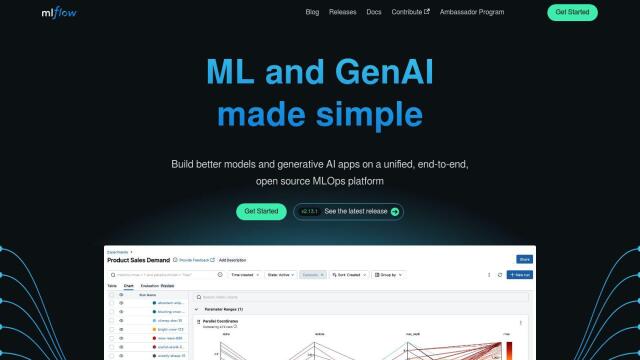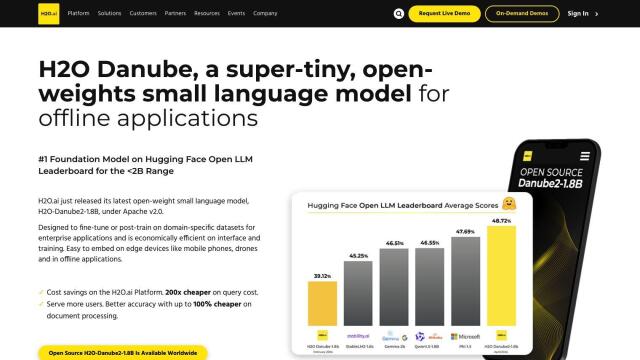
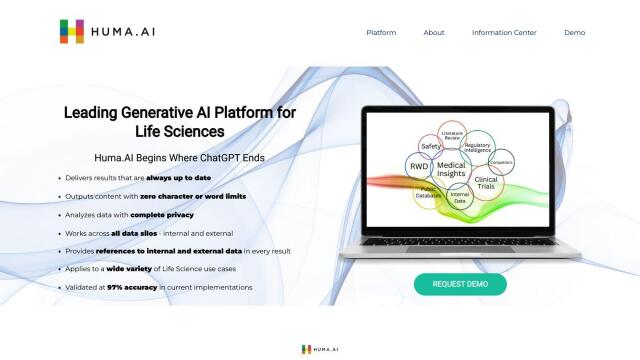
Huma.AI
If you're looking for a JADBio alternative, you might want to check out Huma.AI. This generative AI platform is geared specifically for the life sciences industry, allowing medical affairs, regulatory affairs and clinical development professionals to interpret and analyze machine learning outputs. It can provide up-to-date results without word or character limits, with full privacy, and with access to internal and external data sources. Huma.AI has been validated at 97% accuracy and can provide actionable data and insights in plain language, making it a good option for those who need to inform decisions in medical affairs, clinical development and real-world data analysis.
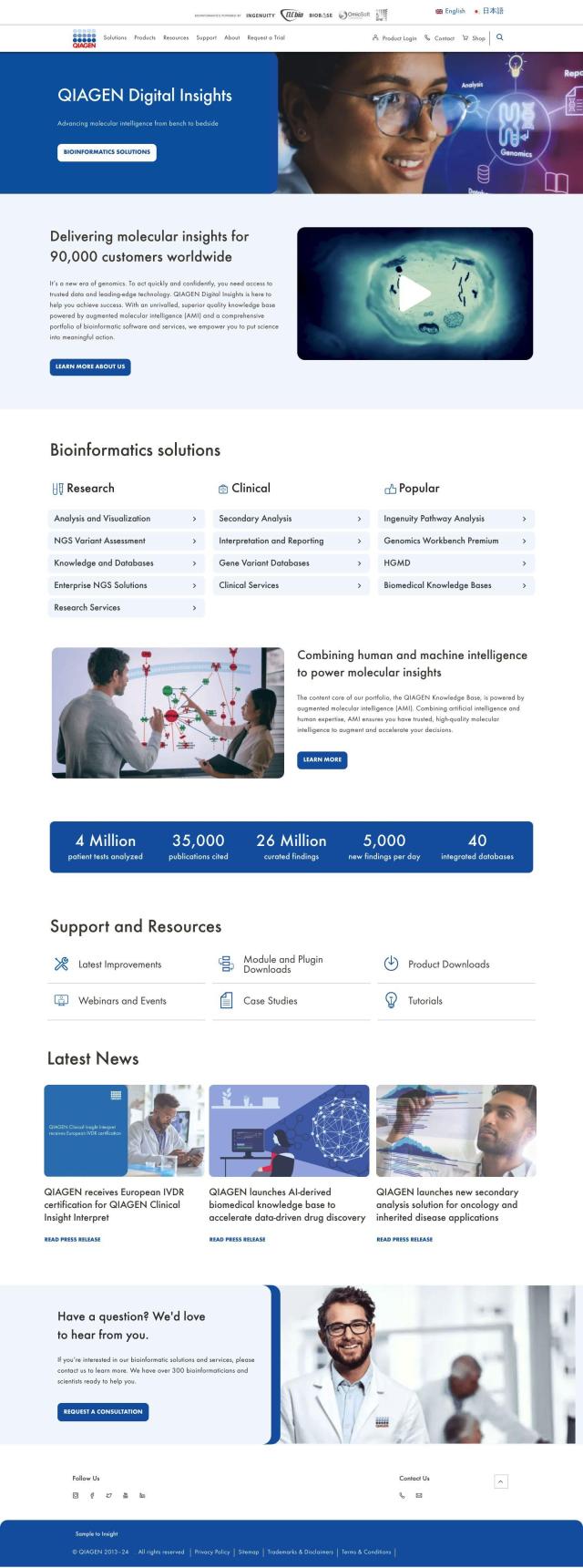
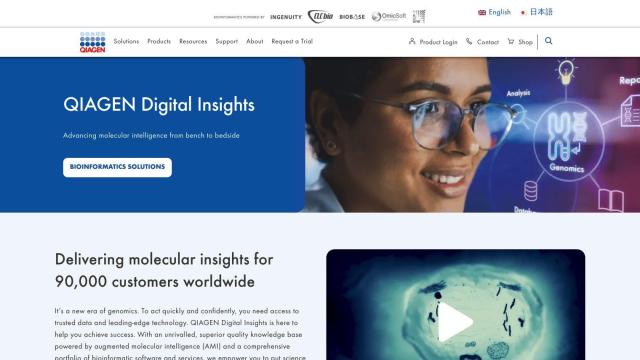
QIAGEN Digital Insights
Another good option is QIAGEN Digital Insights. This all-encompassing bioinformatics software platform offers expert-curated solutions for genomic and clinical research. It has a broad range of applications, including variant assessment, knowledge and databases, and clinical services. The platform includes powerful tools like Ingenuity Pathway Analysis and Genomics Workbench Premium, and is integrated with 40 databases. It has been used in a variety of applications, including biomarker and target discovery, single-cell genomics and microbiome analysis, so it's a good option for extracting actionable insights from basic research to patient care.
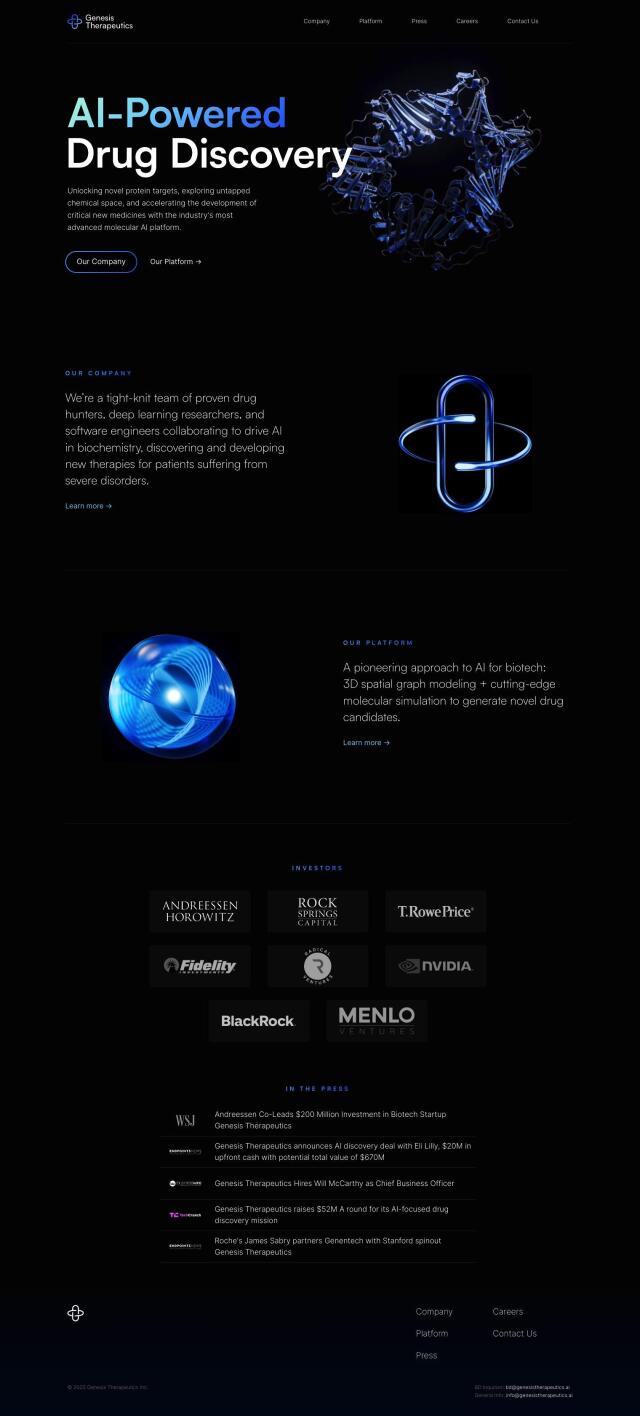
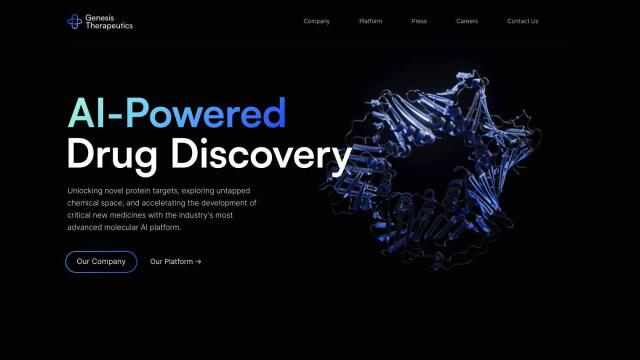
Genesis Therapeutics
Last, Genesis Therapeutics offers the GEMS platform, which uses deep learning and molecular simulations to accelerate the discovery of new medicines. Designed to identify novel protein targets and unexplored chemical space, GEMS enables researchers and developers to design first- and best-in-class small molecule drugs with high potency and selectivity. The platform's proprietary technologies, such as Dynamic PotentialNet, make it a good option for those who need to predict properties and generate molecules for new treatments. Genesis Therapeutics has collaborations with leading pharmaceutical companies and academic labs that show promising results in predicting ADMET properties.

